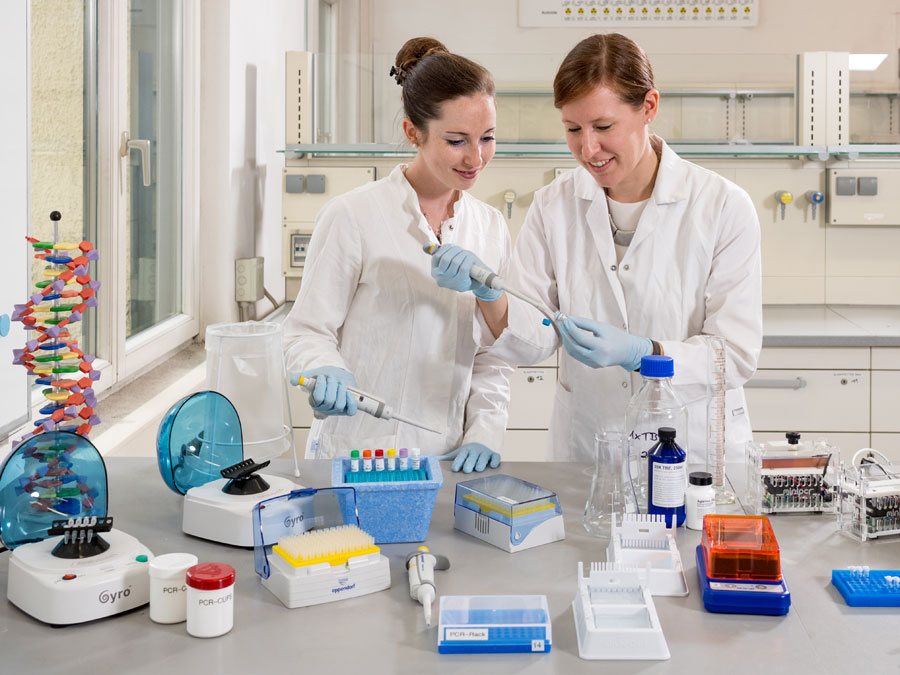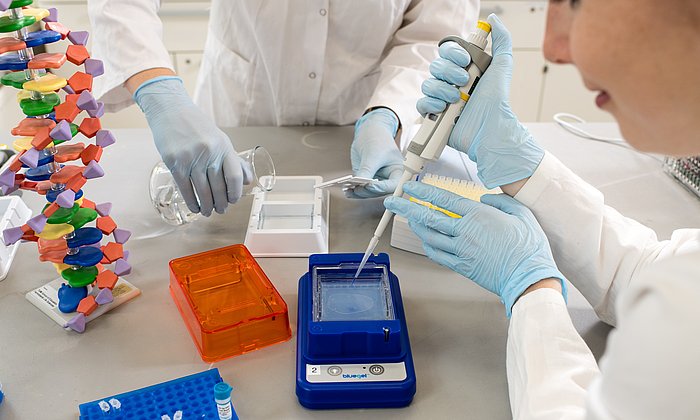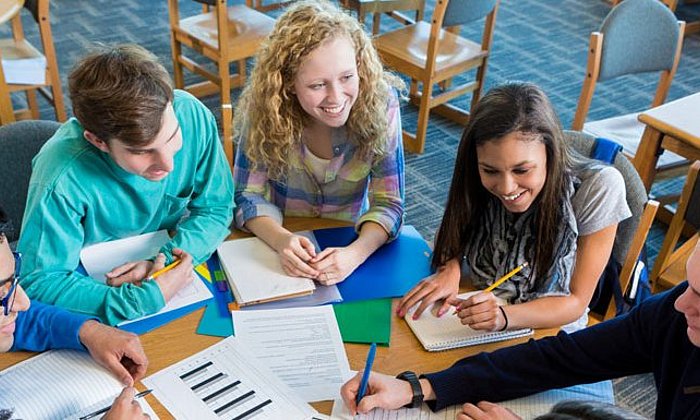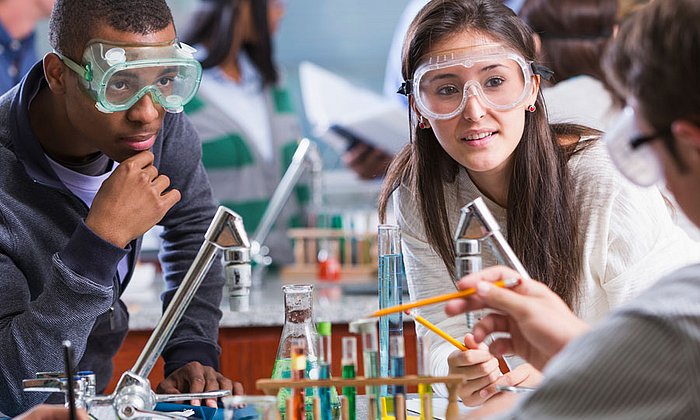New program with continuing education for teachers and laboratory equipment
Biotechnology for the classroom

When teaching natural sciences, a successful lesson includes hands on experimentation by the students themselves. Although this realization has long been established at schools and in educational research, it usually remains a matter of theory rather than practice when it comes to genetic engineering and molecular biology. This is even in spite of the growing significance of these fields of knowledge in both medicine and industry, for example in the development of products from sustainable raw materials.
The reason is simple: Equipping classrooms with facilities and materials for such experiments is usually too expensive. And since genetic technology experiments in the secondary school classroom are still a matter of the distant future, teachers are not given the corresponding training in the first place.
Students solve criminal case using genetic technologies
The Amgen Foundation and TUM want to change all this. Their program offers continuing education for teachers and the equipment necessary in order to actually teach practical elements in the schools.
In the basic course the teachers are familiarized with the work methods and application areas of genetic engineering and then try out experiments for their lessons. For example, the students can investigate a criminal case which is solved based on the genetic defect of a kidnapping victim. In another experiment they analyze how their DNA influences their perception of bitter flavors. In the continuation course fluorescent proteins are cloned, purified and analyzed.
School class experiment in university laboratory
The program is oriented to the curriculum for the 11th grade at secondary grammar schools (Gymnasium). The course, lasting two to three afternoons, is initially intended for teachers in Bavaria and is conducted by the TUM School of Education. The basic courses are either held at the schools or on the premises of the Schülerforschungszentrum Berchtesgadener Land, with the continuation courses held in a TUM safety laboratory.
After the courses the schools can then borrow a comprehensive biotechnology setup at no charge that was developed especially for use in school lessons. The equipment includes for example mini-PCR cyclers, which amplify DNA sequences, and equipment for agar gel electrophoresis, in which DNA strands are separated according to the size and charge of the molecules. The schools also receive solutions and reagents as well as support material, including videos on the experiments.
For the experiments in the continuation course the school classes visit a TUM safety laboratory in order to learn more about the working environment of the pros in science and industry.
Amgen Foundation donates almost 250,000 Euros
The "Amgen Biotech Experience" program was launched almost 30 years ago and since then has been available to secondary school students in many countries, such as the USA, Puerto Rico, Ireland and the United Kingdom. Now the Foundation is expanding the program, joining with a variety of partners in order to bring the concept to many additional countries, including Germany. The TUM Professorship of Life Sciences Education has taken charge of designing the continuing education program for the German secondary school system. Following the pilot phase, already completed, the partners now want to reach as many teachers and schools as possible. The Amgen Foundation will provide approximately 250,000 Euros by the end of 2020.
"The core idea of the Amgen Foundation is to generate enthusiasm for natural sciences, to create inspiration with educational opportunities and to encourage talented young individuals," says Amgen GmbH CEO Dr. Roman Stampfli. "The Foundation supports a large number of educational programs around the world. By the end of 2020 in the Amgen Biotech Experience program alone the Amgen Foundation will inspire a total of approximately 900,000 secondary school students throughout the world with deep insights into the sciences."
"The objective is to get young adults excited about biotechnology and to use experiments to bring them closer to the exciting career fields in science and business," says Prof. Claudia Nerdel, who holds the TUM Professorship of Life Sciences Education. "The individuals who can make this happen are teachers with their expertise. We provide the current state of research in both Life Sciences and Educational Sciences to show how successful learning and fascinating lessons relating to future-oriented biotechnologies work."
More Information:
Contact:
Prof. Dr. Claudia Nerdel
Technical University of Munich
Professorship of Life Sciences Education
Tel.: +49 89 289 25377
claudia.nerdel@tum.de
Technical University of Munich
Corporate Communications Center
- Klaus Becker
- klaus.becker@tum.de
- presse@tum.de
- Teamwebsite



